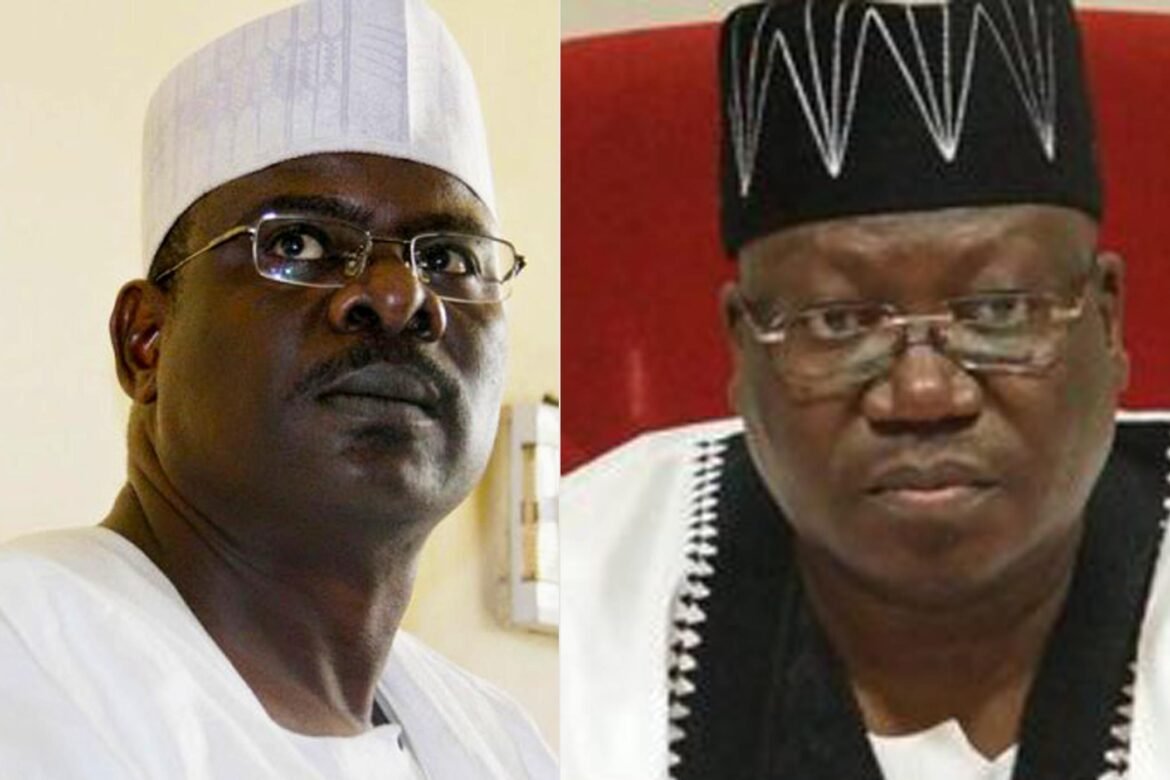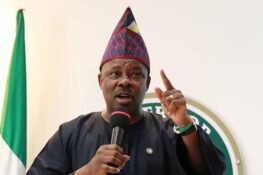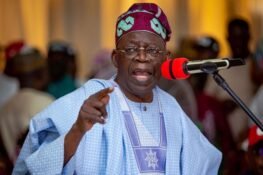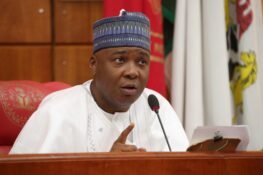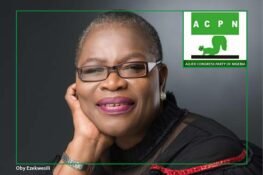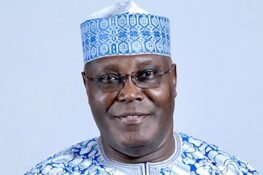The National Assembly needs to amend its rules on how it’s leadership and principal officers are selected.
The ruling All Progressives Congress has been crying out to anyone who cares to listen that the norm is for a member of the majority party in either of the upper and lower houses to automatically become Senate President and Speaker respectively.
No one seems to be listening. The way out is for the legislative body to actually amend its rules compelling the political party in the majority to conduct elections for principal officers several weeks before any new assembly is inaugurated where the entire lawmaking body now elects its leaders.
That was what the APC tried to do back in 2015 but the plan was upended by Bukola Saraki and Yakubu Dogara, who were determined to live by their own rules.
Still, there is no reason why the APC should not go back to that model and more importantly, the party should seek to make this part of the Senate and House rules.
It is not about any party. It’s more about making the National Assembly more organised and rule-based. In any country, anywhere in the world, the party with the majority gets to select who become Speaker or Senate President.
That things are different in Nigeria only suggest we are a country without rules. Or perhaps a place where the rule of the jungle is preferred.
The national chairman of APC, Adams Oshiomhole, has suddenly gone quiet. A month or two ago, he was all fire and brimstone in naming his party’s preferred candidate for seat of Senate President.
In fact, it is quiet on all fronts in the race for the Senate presidency and that of the Speaker of the House of Representatives. But the silence is deceptive; it is the calm before the storm.
That things are different in Nigeria only suggest we are a country without rules. Or perhaps a place where the rule of the jungle is preferred
A couple of weeks after the election, before any names were thrown up or positions zoned to a particular region, spokesman of the House, Abdulrazak Namdas, who wanted to run for Speaker, suggested there could be a rebellion in the House.
He suggested that Oshiomhole should mount a quiet lobby, instead of forcing candidates on the National Assembly.
Oshiomhole could not have been more predictable. He came out smoking. What has ensued is nothing but chaos.
In the House of Representatives, being the candidate of President Muhammadu Buhari and Bola Tinubu has been of great advantage to Femi Gbajabiamila.
Nearly all other contestants have dropped out of the race. And Gbajabiamila has been reported to have gotten the commitment of 178 members of the incoming assembly. That could be enough to clinch him the seat of Speaker. Only nothing in politics is certain.
Worse, house members are known to be fickle and could have a change of heart at the very last minute. So Gbajabiamila will have to keep a tab on all 178 members.
The main challenger Umar Bago has run a very spirited campaign. Bago was strategic in making a case for the north central to produce the next speaker.
It is quiet on all fronts in the race for the Senate presidency and that of the Speaker of the House of Representatives. But the silence is deceptive; it is the calm before the storm
He has also tried to push the idea he would be the only politician from Buhari’s Congress for Progressive Change to get into a leadership position.
That didn’t gain much currency. But the lawmaker from Niger has managed to put the north central on the front burner even though his major challenge has been the stand of his party. And now, he appears to be focused on personal relationships with a number of lawmakers.
In the end, it is votes on the floor of the house that will decide and in the lower house of assembly, it is always much harder to predict what will happen.
It is in the Senate that the real interests of the two major political parties lie. And if the PDP lacks real influence in the National Assembly over the coming four years, the party itself will emerge much weaker ahead of the next general elections.
PDP chairman, Uche Secondus, has in recent weeks been raging against party members planning to work with APC in the election of the top seats in the National Assembly.
On individual basis, it is in the Senate that the presidential candidate of the People’s Democratic Party in the just concluded elections, Atiku Abubakar, sees hope in ensuring that the government of Muhammadu Buhari never finds its feet until his petition against the presidential election is determined by the tribunal.
Atiku, in the last few weeks, has tried to engineer political and social unrest by continuing to campaign. It backfired spectacularly.
Now, both he and his party need to have a strong voice in government to exert influence, political pressure and maybe even destabilize the APC government.
The Senate presidency gives him the platform to do just that legitimately. And outgoing Senate President Bukola Saraki is in prime position to pick a candidate to serve their interest and see to it that the candidate is elected Senate President.
House members are known to be fickle and could have a change of heart at the very last minute. So Gbajabiamila will have to keep a tab on all 178 members
No one doubts that Saraki has a stake in who emerges Senate president.
His candidate of choice as reported in the media is Senator Danjuma Goje, a member of the APC, but one with origins from the opposition PDP. More importantly, Goje has a history with Atiku Abubakar.
That was how he first emerged as governor in Gombe back in 2003. It won’t be difficult for them to once again develop a working relationship.
Even in 2015, it was Senator Ahmed Lawan that had the backing of President Buhari to become Senate President. Four years later, the senator from Yobe does not appear to have lost Buhari’s confidence.
That does not make leading the Senate a right for Lawan. And according to the constitution and rules of the senate, it is also not a right for the majority party to hold the seat. Still, the senator’s biggest claim to the coveted seat is that he is the choice of his party and the President.
But that is not his only claim. He is one of the very few lawmakers to have been in the National Assembly since 1999.
Lawan may not know it, but whether he succeeds or fails to become president of the Senate depends on how far the opposition PDP is willing to go in trying undermine any attempt by the ruling APC to consolidate power.
So far, the PDP eagerly seeks every opportunity to relive the 2019 presidential elections and demonstrate to the world that the outcome does not represent the true wishes of the Nigerian people.
June 11 gives them such an opportunity. The party may not field its own member to challenge Lawan, but it has a compromise.
Lawan may not know it, but whether he succeeds or fails to become president of the Senate depends on how far the opposition PDP is willing to go in trying undermine any attempt by the ruling APC to consolidate power
Senator Ali Ndume doesn’t have the backing of his party. Neither is he the choice of the PDP caucus in the Senate. At a point, Ndume was closely aligned with Bukola Saraki but they fell out publicly with Ndume losing his seat as majority leader.
In justifying his right to run, the Borno senator claims to be unaware of Buhari’s choice of Ahmed Lawan to become the next president of the Senate.
He has even gone as far as saying he sought the president’s blessing before joining the race. It is no secret however that neither Buhari or the party is with him.
Ndume’s candidacy is more than anything else, about his own ambition and the idea that he deserves more than the President or his party is ready to accord him. This is also about identity.
The idea that a candidate who is not Kanuri can come to be the representative of a region dominated by the tribe is unforgivable for a number of politicians.
But the key point however is that without Ndume in the race, the PDP does stand a chance of putting forward its preferred candidate. In that sense, Ndume is the spoiler in the race.
It raises questions why Ndume is really doing this with the very weak support base he has among the two camp that can determine how events unfold on the Senate floor on June 11.
